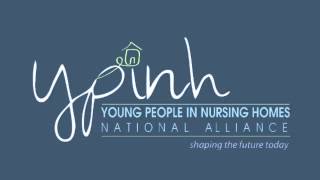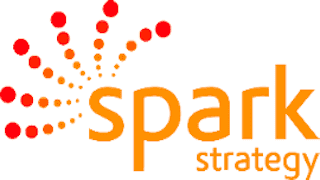NDIS
Cross Sector Engagement Project
The Young People In Nursing Homes National Alliance and Spark Strategy have been funded by the National Disability Insurance Agency to undertake a project to promote cross sector engagement with the National Disability Insurance Scheme (NDIS).
Impact Report
Each year we get to share with you the work we have been doing in a format that’s not about us at all. It’s about the magnificent humans we get to work with, the world they are changing and how they are going about changing it… Welcome to our FY2020/21 Spark Impact Report!

The NDIS Cross Sector Engagement Project will bring leaders together from peak bodies across multiple sectors to create engagement opportunities that result in better information flow to their members about the NDIS, collaboration on policy development and better understanding of the reform opportunities for Australians with disability in every service sector.
As a collaborative, capacity building activity, the project will initiate cross-sector engagement with the NDIS and identify policy and practice imperatives to support people with disability as citizens. It offers a unique opportunity for peak bodies to contribute advice and communicate directly to the NDIA.
The project will run over 9 months and involve a number of consultations and two national workshops with industry peak bodies from health, education, justice, aged care and disability sectors. The development of an integrated engagement strategy will be one of the project’s key outcomes.
Background
The NDIS is a transformational social reform that aims to increase the social and economic participation of people with disability in Australia. Underpinned by the values of the UN Convention on the Rights of Persons with Disability, the NDIS offers an important and practical opportunity to realise the citizenship of Australians with disability as valued and contributing members of their communities. Achieving the individual goals of scheme participants and the wider social objectives of the scheme can only be realised through access to mainstream community programs.
All Australians rely on mainstream services and supports. In the past, however, Australians with disability have been largely defined by their disability, resulting in both inequality of access to mainstream services, and a lack of capacity in these programs to respond to the needs of people with disability.
The project will identify opportunities for sector peak organisations to build their own capacities to better support their members in understanding and working with the NDIS and working with people with disability. The outcomes of the project will be reported to the National Disability Insurance Agency and the Department of Social Services.
The NDIS Cross Sector Engagement Project is an extension of previous work on cross sector coordination and collaborative policy options undertaken by the Young People in Nursing Homes National Alliance and Sydney University captured in the “Cross sector service coordination for people with high and complex needs: Harnessing existing evidence and knowledge” discussion paper.
Across various portfolio areas, the experiences of people with disability do not compare well with other Australians.
While the NDIS will be a very useful reform it cannot on its own resolve all these disparities.
30% of people with a disability do not go beyond Year 10, compared to 20% of people without a disability1
Sources
2 PriceWaterhouseCoopers; Disability expectations Investing in a better life, a stronger Australia 2011
3 Australian Institute of Health and Welfare; Mental health of prison entrants, Canberra 2012 http://www.aihw.gov.au/prisoner-health/mental-health/
4Australian Institute of Health and Welfare. (December 2007) Disability In Australia: Acquired Brain Injury, Bulletin 55: www.aihw.gov.au/publications/aus/bulletin55/bulletin55.pdf
5 Australian Bureau of Statistics; Disability and Labour Force Participation, 2012, at http://www.abs.gov.au/ausstats/abs@.nsf/mf/4433.0.55.006
6 Productivity Commission, Report on Government Services 2015, SERVICES FOR PEOPLE WITH DISABILITY PAGE 2 of TABLE 14A.68
Background Material
COAG Principles for responsibilities of NDIS and other service systems
In 2013 COAG agreed on a set of principles on how responsibility for services for people with disability could be determined across the NDIS and other service systems. These principles have guided decisions at the individual and policy level in the development of the NDIS to date.
The headline principles are:
- People with disability have the same right of access to services as all Australians, consistent with the goals of the National Disability Strategy which aims to maximise the potential and participation of people with disability.
- The NDIS will fund personalised supports related to people’s disability support needs, unless those supports are part of another service system’s universal service obligation (for example, meeting the health, education, housing, or safety needs of all Australians) or covered by reasonable adjustment (as required under the Commonwealth Disability Discrimination Act or similar legislation in jurisdictions).
- Clear funding and delivery responsibilities should provide for the transparency and integrity of government appropriations consistent with their agreed policy goals.
- There should be a nationally consistent approach to the supports funded by the NDIS and the basis on which NDIS engages with other systems, noting that because there will be variation in non-NDIS supports funded within jurisdictions there will need to be flexibility and innovation in the way the NDIS funds and/or delivers these activities.
- In determining the approach to the supports funded by the NDIS and other service systems governments will have regard to efficiency, the existing statutory responsibilities and policy objectives of other service systems and operational implications.
- The interactions of people with disability with the NDIS and other service systems should be as seamless as possible, with a no wrong door approach, and minimising the impact of system and organisational boundaries on people with disability, enabling coordinated and integrated plans, supports, referrals and transitions.
The NDIS Act 2013
The design of the NDIS is set out in the legislation and associated rules. A key design feature is that the NDIS is not a capped program, but will provide ‘reasonable and necessary’ supports to scheme participants to achieve the goals in their approved plan.
Section 34 of the NDIS Act details how this is determined. Section 34 (f) refers to the requirement to determine the reasonableness of a support based on whether it is more appropriately funded by another service system.
Exapnd for more
For the purposes of specifying, in a statement of participant supports, the general supports that will be provided, and the reasonable and necessary supports that will be funded, the CEO must be satisfied of all of the following in relation to the funding or provision of each such support:
(a) the support will assist the participant to pursue the goals, objectives and aspirations included in the participant’s statement of goals and aspirations;
(b) the support will assist the participant to undertake activities, so as to facilitate the participant’s social and economic participation;
(c) the support represents value for money in that the costs of the support are reasonable, relative to both the benefits achieved and the cost of alternative support;
(d) the support will be, or is likely to be, effective and beneficial for the participant, having regard to current good practice;
(e) the funding or provision of the support takes account of what it is reasonable to expect families, carers, informal networks and the community to provide;
(f) the support is most appropriately funded or provided through the National Disability Insurance Scheme, and is not more appropriately funded or provided through other general systems of service delivery or support services offered by a person, agency or body, or systems of service delivery or support services offered:
(i) as part of a universal service obligation; or
(ii) in accordance with reasonable adjustments required under a law dealing with discrimination on the basis of disability;
(g) the support is not prescribed by the National Disability Insurance Scheme rules as a support that will not be funded or provided under the National Disability Insurance Scheme;
(h) the funding of the support complies with the methods or criteria (if any) prescribed by the National Disability Insurance Scheme rules for deciding the reasonable and necessary supports that will be funded under the National Disability Insurance Scheme.
The Disability Discrimination Act 1992
Exapnd for more
A number of sector specific standards have been developed as part of the DDA, including for education (Disability Standards for Education) and for Transport (Disability Standards for Accessible Public Transport). These are essentially ant-discrimination standards, but are often mistaken for guidelines for practice in mainstream sectors.
The DDA refers to ‘reasonable adjustments’ that need to be made to goods, services or employment arrangements to make them non-discriminatory. These are referenced in S 34 of the NDIS Act as part of determining reasonable and necessary supports for participants.
Health/Disability Network – Western Australia
The Health Disability Network was established in 2012 following a recommendation from the WA Clinical Senate to lead improved cross sector collaboration and service development by the Health Department WA and the Disability Services Commission
http://www.healthnetworks.health.wa.gov.au/network/disability.cfm
South Australian Centre for Disability Health
There is a campaign to stop the closure of the South Australian Centre for Disability Health, which is a specialist health service for people with disability operating out of Modbury Hospital. It has been funded by the Department of Communities and Social Inclusion, but is not a service that the NDIS can fund, and the SA Department of Health is yet to agree to take it over. This is one of a number of block funded services for people with disability that are closing or needing to transition into the NDIS. Managing the future of these cross-sector services is a key issue for the NDIS transition.
The following links are media releases about the Centre for Disability Health:
Kelly Vincent, Dignity for Disability MLC and Stephen Wade, Shadow Minister for Health SA
Royal Australian and New Zealand College of Psychiatrists
https://www.ranzcp.org/News-policy/News/Threatened-closure-of-specialist-disability-health.aspx
Deeble Institute for Health Policy Research
This issues brief from the Deeble Institute for Health Policy Research looks at the implications of the NDIS for health services delivery and offers a number of recommendations for action.
Implications of the National Disability Insurance Scheme for health service delivery
The National Disability Strategy
The National Disability Strategy is a commitment by all levels of governments in Australia to implement the tenets of the UN Convention of the Rights of People with Disabilities. The implementation of the NDIS responds to one of 6 policy objectives contained in the NDS.
These are:
- Inclusive and accessible communities
- Rights protection, justice and legislation
- Economic security
- Personal and community support
- Learning and skills.
- Health and wellbeing
Productivity Commission Report (chapter 5)
The Productivity Commission also covered the issues around the interface of the NDIS with mainstream services in detail in their 2010 Disability Care and Support Inquiry Report. They say about mainstream services:
Mainstream services are those that people generally use. They may include government-funded services (education, health care, public housing and transport, and employment services) and services provided by the private sector (a swimming pool, gym, the theatre and holidays). People with disabilities use these services like anyone else. It is generally accepted that disability services should not replace mainstream or other specialist services available to the broader population, or be expected to meet all the needs of people with disability. Indeed, a key policy goal is to move away from primary reliance on specialist disability services to the use of mainstream services or at least to a mix of the two (KPMG 2009). The former often isolates people with disability and reduces their power and choice. Strengthening access to mainstream services for people with disability is one focus of the current intergovernmental agreement on disability services.
But, as KPMG observed, achieving change requires a new way of thinking:
These reform directions require a shift from seeing the disability service system as the source of all support for a person with a disability, to seeing the disability service system as one part of a broader service response that complements other informal and formal supports (including health, education, housing, employment and income support). This shift towards more inclusive mainstream services and a greater emphasis on informal supports is in line with progressive thinking that is at an early stage internationally.
Access to generic services, such as health and housing, can affect demand for NDIS-funded services, and vice versa. It will be important for the scheme not to respond to problems or shortfalls in mainstream services by providing its own substitute services. To do so would weaken the incentives by governments to properly fund mainstream services for people with a disability, shifting the cost to another part of government (such as from a state government to the NDIS, or from one budget ‘silo’ to another). This ‘pass the parcel’ approach would undermine the sustainability of the scheme and the capacity of people with a disability to access mainstream services. (Vol 1 p 238-9)
Children with Disability Australia
The interface between the NDIS and other portfolios dealing with young people is a critical area. Children with Disability Australia has developed papers looking at both the NDIS/school education interface as well as the NDIS/Family Support Program interface.
Access to Justice in the Criminal Justice System for People With Disability
In this submission to the Human Rights Commission’s issues paper on Access to Justice in the Criminal Justice System for People With Disability, the Law Council of Australia identifies 5 key barriers to justice for people with disability and offers options for addressing these barriers.
Access to Justice in the Criminal Justice System for People With Disability
Acquired Brain Injuries & The Criminal Justice System
While people with Acquired Brain Injuries (ABI) comprise only 2% of the population, a study by Victoria Corrections found that 42% of male prisoners and 33% of female prisoners have an ABI.
This program from the ABC’s Law Report, speaks with members of the Enabling Justice Project delivered by Jesuit Social Services and RMIT’s Centre for Innovative Justice.
The project is investigating and raising awareness around why people with ABIs are so over-represented in the criminal justice system.
Who’s involved?
The Young People In Nursing Homes National Alliance

The YPINH National Alliance is Australia’s peak national organisation representing young people living in nursing homes and their families; and young people at risk of entering residential aged care (YPINH).
The Alliance has been active in the young people in nursing homes space for 14 years and works closely with state and federal governments on the policy and practice reforms needed to resolve the YPINH issue. The Alliance was responsible for the $244m Younger People In Residential Age Care (YPIRAC) initiative that was rolled out nationally and has supported the development of both the National Disability Insurance Scheme and the National Injury Insurance Scheme.
Since the end of the YPIRAC program in 2011, the Alliance has worked with mainstream programs to develop integrated service responses that incorporate cross-sector policy and service coordination by disability and mainstream services. Most recently, the Alliance collaborated with Sydney University’s Centre for Disability Research and Policy to examine evidence and practice in this area.
See www.ypinh.org.au
Further Contact regarding the project:
Dr Bronwyn Morkham
National Director
Young People In Nursing Homes National Alliance
M: 0407 542 605
E: bronwyn@ypinh.org.au
The Young People In Nursing Homes National Alliance

Spark is an agency for strategic thinking, transformation and sustained action. The team believes ideas spark brighter futures and help organisations unearth these ideas and bring them to life. Spark works with Not for Profits, Private Sector, Government and Social Businesses to unleash their potential, to transform themselves and the societies in which they live.
A certified B Corp, Spark stands for purpose, not just profit and strives for high impact, approaching social development problems from multiple angles, including NGOs’ delivery, Government policy, international collaboration and new models for incubation for system change.
Three elements that converge in Spark’s work are:
- 18 years of strategy;
- Deep knowledge of the social sector; and
- A strong track record influencing system change.
Spark has a diverse client base such as Orygen: the National Centre for Excellence in Youth Mental Health, the Movember Foundation, the Victorian Department of Premier and Cabinet, Deaf Children Australia, Victorian Opera, the Foundation for Young Australians, the federal Department of Veterans Affairs and the Young and Well Cooperative Research Centre.
With a highly interactive approach, Spark Strategy is well placed to lead thinking around generation of ideas, strategies and solutions.
